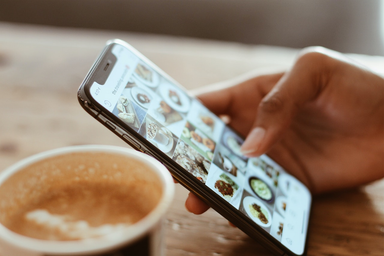Mobile Apps for Mental Health

When it comes to technology and mental health, smartphone addiction and mobile applications like social media, are associated with negative mental health outcomes. Many researchers, however, see the potential for mobile applications to improve mental health outcomes and alleviate barriers to treatment. Mental health apps, or MHapps, are applications that can be downloaded onto mobile devices to address a multitude of mental health conditions such as anxiety, depression, and insomnia. This 500 million dollar industry is growing in popularity but not without its issues. While the Food and Drug Administration regulates a few apps that provide treatment and diagnosis, many MHapps aren’t regulated and don’t have guidelines for their development which can make users wary of their safety and effectiveness. There is, however, clinical research that shows that these apps are a useful tool to supplement in-person therapy, provide education, and teach healthy coping skills. There are currently an estimated 10,000 different MHapps available for download in various marketplaces. So how do you find a credible mental health app that works for you?
Experts say you should evaluate MHapps by 3 main criteria: credibility, privacy and data security, and engagement and design. Credibility refers to whether or not the MHapp will work. Many apps are informed by mental health research but very few have been evaluated with a clinical trial. In order to assess credibility, you should visit the apps website and investigate what research was done to develop or evaluate the app. When it comes to your privacy and data, it’s worth checking out the app’s privacy policy to see what will happen to any data or information you enter. Engagement and design refers to the user experience, or how easy, fun, or engaging, the app is to use. MHapps that are easy and fun to use are more likely to keep you engaged and provide better outcomes. Mind Apps and OneMind Psyberguide are organizations that evaluate MHapps on the basis of those three criteria and are useful websites for finding a mental health app that is safe, effective, and well suited to your needs.
Sources:
Bakker, D., Kazantzis, N., Rickwood, D., & Rickard, N. (2016). Mental Health Smartphone Apps: Review and Evidence-Based Recommendations for Future Developments. JMIR mental health, 3(1), e7. https://doi.org/10.2196/mental.4984
Caron, C. (2022, April 13). How to Find a Mental Health App That Works for You. The New York Times. https://www.nytimes.com/2022/04/13/well/mind/mental-health-apps-therapy.html
Elhai, J. D., Dvorak, R. D., Levine, J. C., & Hall, B. J. (2017). Problematic smartphone use: A conceptual overview and systematic review of relations with anxiety and depression psychopathology. Journal of affective disorders, 207, 251–259. https://doi.org/10.1016/j.jad.2016.08.030


